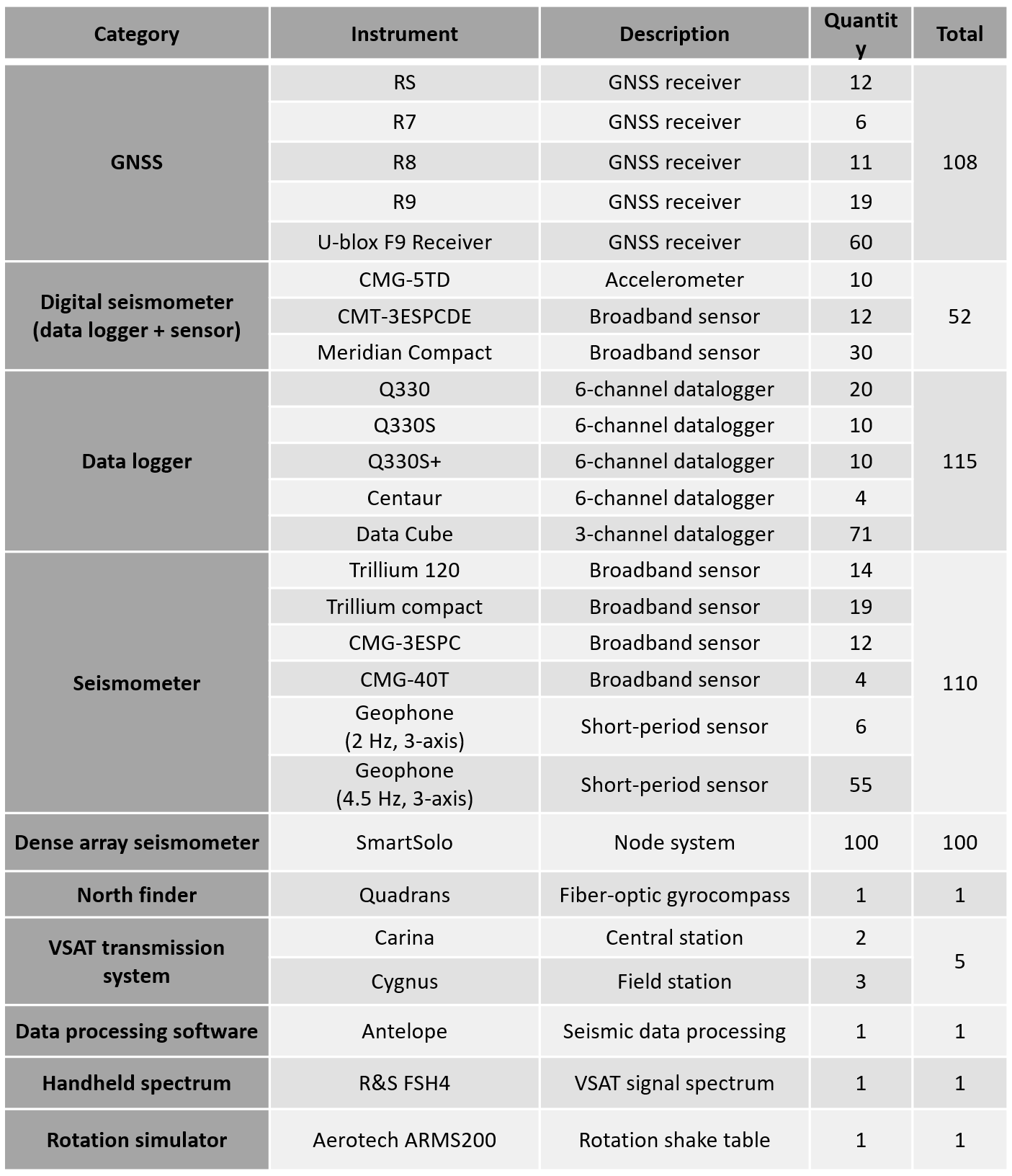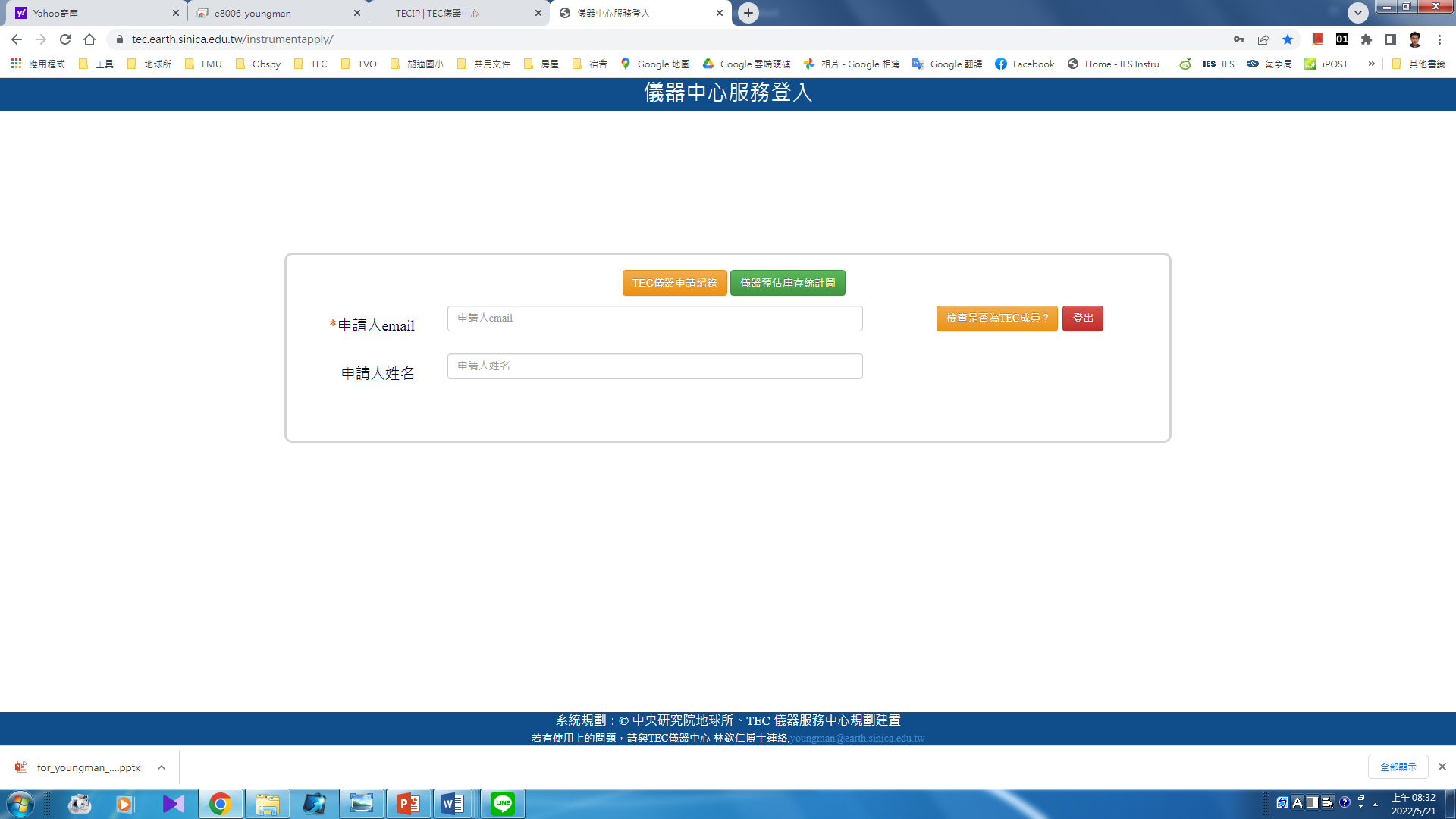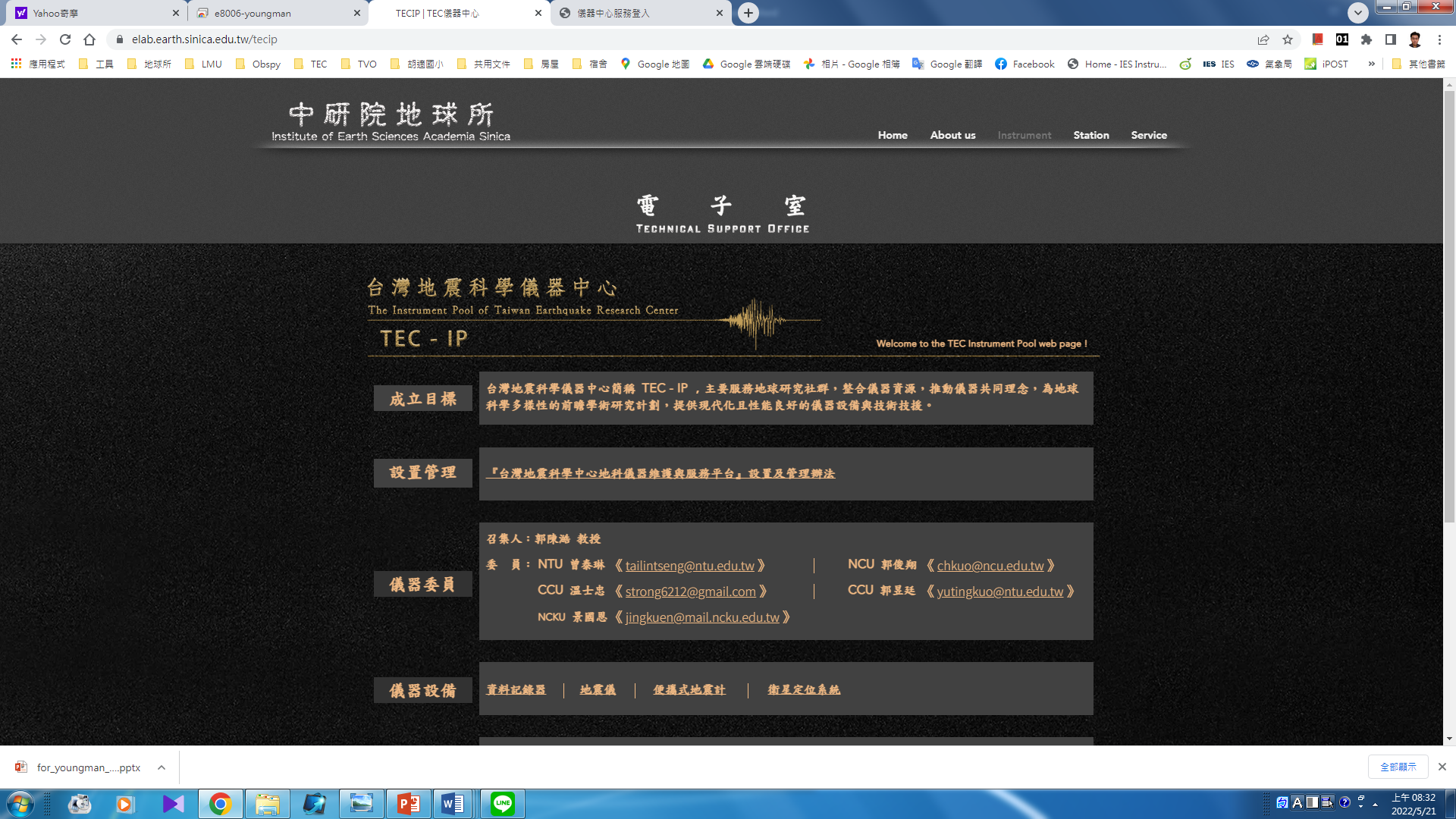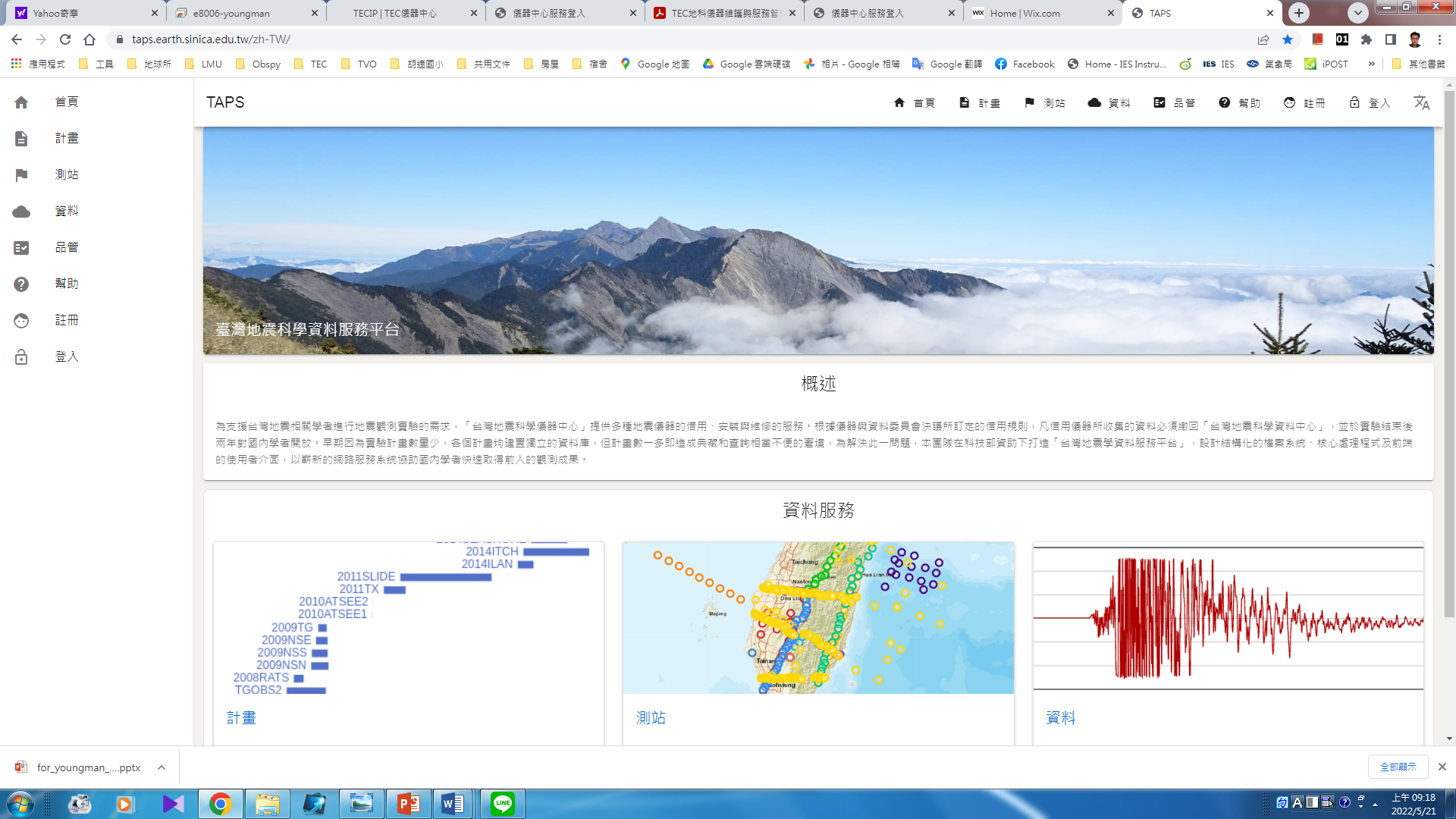TEC通訊 |
上一頁 |
首頁 |
下一頁




|
|||
Taiwan Earthquake Research Center Instrument ServiceChin-Jen Lin Institute of Earth Sciences, Academia Sinicadoi: 10.30067/TECNL.202206_1(1).0005
Abstract The Taiwan Earthquake Research Center studies seismogenic and rupture processes, engaging in precise monitoring and measurement of deformation across the entire island of Taiwan. The center also acts as a platform for advanced research e.g., the Taiwan Earthquake Model, Earthquake Early Warning, Earthquake Precursor, and the ground motion simulation of the metropolitan city. To provide technical support for this research, an instrument center supported by the National Science Council (now the Ministry of Science and Technology) was established in 2006 and is operated by the Institute of Earth Sciences, Academia Sinica. The instrument center contains several state-of-the-art portable broadband seismographs, continuous global navigation satellite system tracking equipment, and advanced data processing and database management tools to assist scientists in acquiring and archiving seismic information. Furthermore, the facility provides experts for consulting, installation, data archival and other services. An Instrument Advisory Committee made up of impartial members from the TEC Executive Committee along with any interested university representatives is designed to make policies, approve requests, and maintain community oversight. Inventory To follow the model of the Incorporated Research Institutions for Seismology (IRIS) Portable Array Seismic Studies of the Continental Lithosphere (PASSCAL) Instrument Center, the world’s largest academic pool of seismological research instrumentation, the Taiwan Earthquake Research Center Instrument Pool (TECIP) funded by the Department of Natural Sciences and Sustainable Development, National Science Council (now the Ministry of Science and Technology) was established in 2006. The TECIP continues to expand its inventory every year. As of 2021/12, the inventory in service consists of 108 continuous global navigation satellite system (GNSS) tracking instruments, 114 seismic data loggers, 49 broadband seismometers, 61 short-period geophones, 52 digital seismometers (data loggers and sensors), 100 dense array seismometers, one gyrocompass, a very small aperture terminal (VSAT) transmission system, Antelope data processing software, and a calibration facility (Table 1). Table 1、TECIP instrument inventory (as of 2021/12)。 Instrument Use Policy The seismic instruments purchased by the TECIP are available to any research or educational institution to use for research purposes within the guidelines established in this document. An Instrument Advisory Committee of impartial members from the TEC Executive Committee along with any interested university representatives is designed to make policies, approve requests, and maintain community oversight. According to the TECIP regulations, the duration of an instrument loan for an experiment is limited to two years. Special requests for longer duration of an instrument loan is possible and need to be discussed by TEC Executive Committee. The TEC Data Center (TECDC) will make the data available only to the principal investigator (PI) or designated representative(s) for a period of up to two years after the completion of the experiment. The instrument request needs to be submitted by no later than the end of July. The TEC will publish the schedule no later than the end of October as soon as the committee recommendations are completed. Once the experiment has been scheduled, the PI will be contacted to work out the details about the exact type of equipment requested. Subject to equipment availability (so as not to interfere with previously approved experiments), instrument requests can also be made at any time during the year, and they will be made available to users as the schedule permits.
All PIs are required to submit two reports for each instrument request. The Installation Report must be submitted via the instrument request website within two months after the fieldwork has been completed. The Experiment Report must be submitted via the instrument request website within 3 months after the demobilization date. The Installation Report summarizes the field portion of the experiment. The Experiment Report should contain enough information that a researcher who is unfamiliar with the project can scan the report and determine whether or not the data would be useful to them. Although specific requirements for the format of the report do not exist, all reports submitted should include:
Data Delivery Policy The delivery of data collected by the PI using the TEC equipment and associated metadata to the TECDC is an obligation of the PI. Abiding by this data policy ensures the continued contribution of the TECIP facility to seismological studies. Failure to complete this requirement not only deprives the community of a valuable data resource, but also may jeopardize future requests to borrow TEC equipment. The TECDC will make the data available only to the PIs and their designated representative(s) for a period of up to two years after the completion of the experiment. The PI can waive this period of exclusive access. After the prescribed moratorium, the data will be made freely and openly available to TEC members.
ReferenceThe Incorporated Research Institutions for Seismology (IRIS) Portable Array Seismic Studies of the Continental Lithosphere (PASSCAL) Instrument Center. https://www.passcal.nmt.edu/ | |||



